WSIS ALFM C7: E-Agriculture
Food and Agriculture Organization of the United Nations and International Telecommunication Union
Session 329
ICTs for Well-Being, Inclusion and Resilience: through digital skills for youth and women in agriculture
The world is emerging from a global pandemic and is facing a food crisis and climate change threatening to derail the achievements of sustainable development goals. The emerging global economy is increasingly getting digital. Policy makers are thinking how to creatively bridge the economic opportunities in agri-food systems in a sustainable and inclusive manner. Including youth and women (and other marginalized groups) is premised to increase sustainable agriculture production and revitalization of rural communities.
Digital skills are important for participating in the emerging digital economy, yet youth and women remain marginalized presently. The digital divides continue to expand in many developing countries and if left unchecked, investments in digital technologies risks widening the gap. The International Telecommunication Union (ITU) estimates that globally, women and girls use the internet 12.5 percent less than men and boys. However, evidence has shown that when women and girls are empowered through Information and Communications Technologies (ICT), they gain opportunities that positively impact their overall financial security, health, and ability to engage in public life – benefitting all of society. The United Nations Secretary-General’s Roadmap for Digital Cooperation calls for 8 key-areas for action, one of which is, ensuring digital inclusion for all, including the most vulnerable.
The Food and Agriculture Organization of the United Nations and the International Telecommunication Union have been exploring how digital technologies and digitalization can improve the participation of youth and women in local economies, including agriculture. For example, the two agencies published the “Status of Digital Agriculture in 18 countries of Europe and Central Asia” and also “Status of Digital Agriculture in 47 sub-Saharan Africa countries”. Both studies provided a respective regional landscape of the status of digital agriculture and the potential investment areas for digital transformation in the agriculture sector.
The Africa study, which was officially in March 2022 with hundreds of participations at the ICT4Ag conference, has drawn great attention of various stakeholders at the national and regional levels. The report pointed to potential investment areas, which include improving digital skills for the youth and women in agriculture. The report encouraged further discussions and explorations with stakeholders on possible interventions that can support youth and women. Furthermore, investments are needed in rural communities to boost digital transformation in the agri-food sector in sub-Saharan Africa (and elsewhere) that can benefit food system actors, particularly smallholders.
In this light, the WSIS Forum 2022 represents the world's largest annual gathering of the ‘ICT for development’ community. This global multi-stakeholder platform and community allows for broad-based discussion on issues around digital technologies in the implementation and advancing sustainable development. FAO facilitates the WSIS Action Line C7 e-Agriculture Session yearly. In line with the WSIS Forum 2022 theme, “ICTs for Well-Being, Inclusion and Resilience: WSIS Cooperation for Accelerating Progress on the SDGs”, FAO is working closely with ITU to bring issues related to digital skills, innovation, and inclusion for youth and women to the discussion by stakeholders.
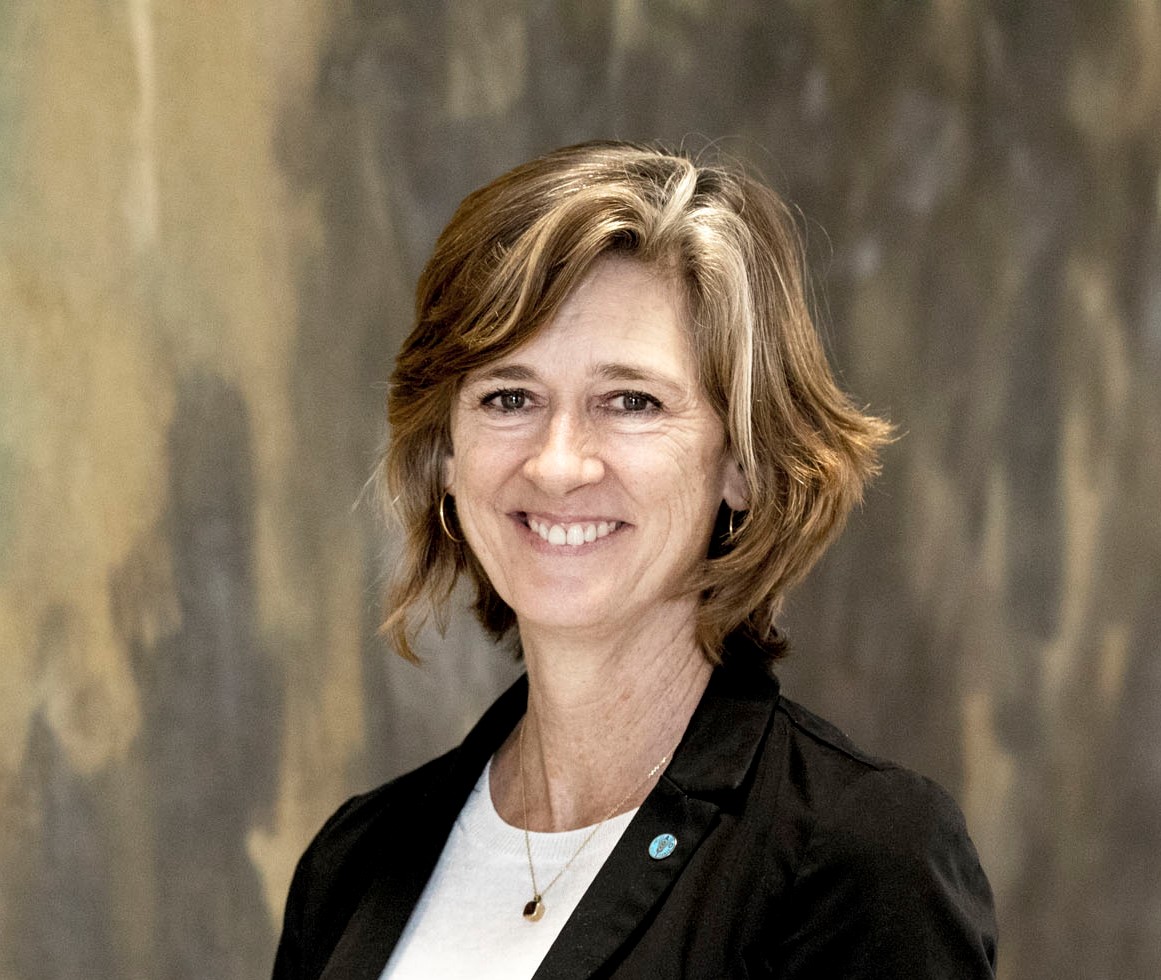.jpg?maxwidth=500)
Ms Crawford, a national of the United States of America, holds a Master’s degree in Public Administration (MPA) from New York University and a Bachelor of Science degree in Psychology from Santa Clara University, California.
She started her career in 1984 as US Peace Corps volunteer in the Democratic Republic of Congo. Upon her return to the USA, she worked as an advisor in the study abroad office at the University of Maryland and as a programme associate in the philanthropy department of Chase Manhattan Bank in New York. She joined FAO in January 1997, working at Headquarters in Rome in the areas of strategic planning, programming and budgeting. In July 2013, she was appointed FAO Representative to Sri Lanka and the Maldives, based in Sri Lanka, and, in December 2015, she became Regional Programme Leader at FAO’s Regional Office for Africa in Ghana.
In May 2017, Ms Crawford returned to FAO Headquarters as Deputy Director in the Office of Strategy, Programme and Budget (OSP) and in January 2019 was appointed Director, OSP. In January 2022, Ms Crawford took up the additional position of Officer-in-Charge of the FAO Office of Innovation.

Dejan Jakovljevic is the CIO and Director of Digitalization and Informatics Division of the Food and Agriculture Organization of the United Nations, based in Rome, Italy. Mr. Jakovljevic has more than two decades of experience focusing on strategic aspects of IT, driving organizational modernization and transformation in the International Development domain. He is passionate about bringing digital capabilities and innovation into accelerating impact in support of Sustainable Development Goals. His previous experience includes IT leadership roles in South East Asia and European Region, with UNICEF, WHO, and OSCE.

Lauren M. Phillips is an international political economist and currently Deputy Director for the Inclusive Rural Transformation and Gender Equality Division of the United Nation’s Food and Agriculture Organization. Prior to joining FAO in 2021 she worked in a variety of policy, strategy and advisory roles at the International Fund for Agricultural Development from 2015-2021, as an Assistant Professor in the Department of International Relations at the London School of Economics (2008-2014), as a Research Fellow at the Overseas Development Institute (2005-08), and in a variety of private finance roles in the City of London and New York. She holds a PhD in International Political Economy from the London School of Economics and master and undergraduate degrees from Stanford University. Lauren is also an Adjunct Professor at Johns Hopkins SAIS Europe and has published widely on finance and development.
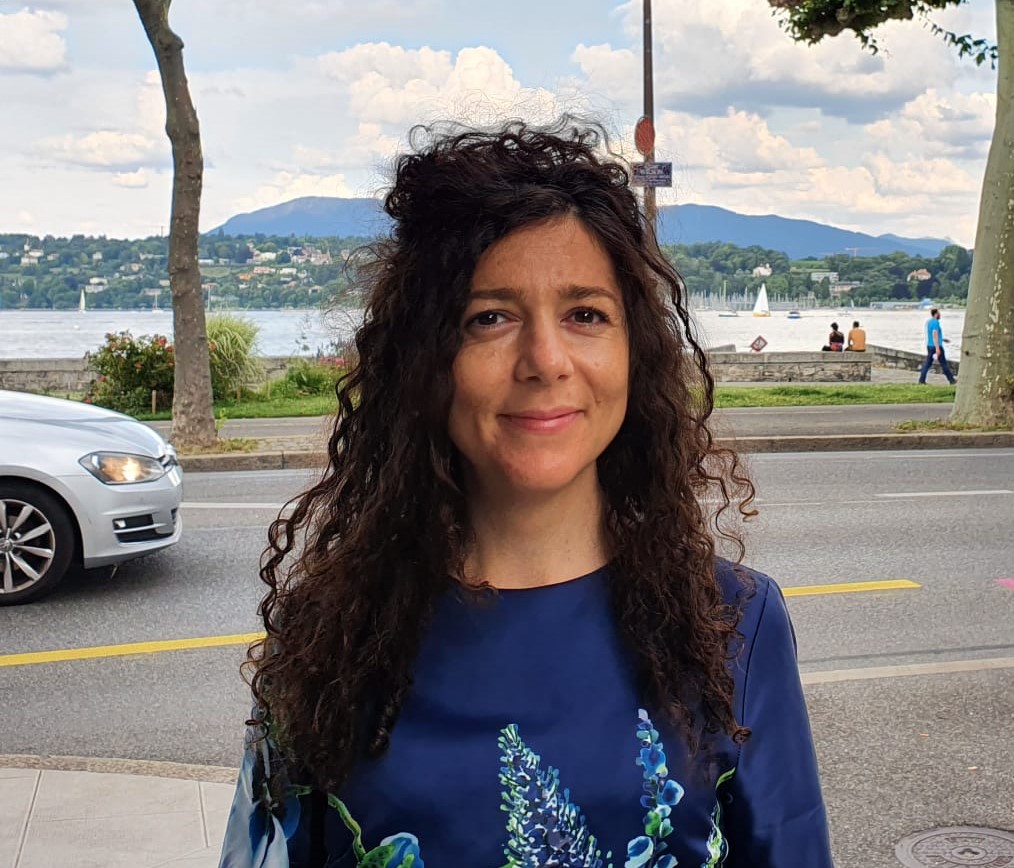.jpeg?maxwidth=500)
Carla Licciardello is Senior Digital Inclusion Coordinator at the International Telecommunication Union, based in Geneva. She is responsible for supporting digital inclusion activities including online protection for children, youth and women and girls’ empowerment. Before joining ITU, Carla has worked for the Italian Mission in Geneva and the United Nations Office for Disaster Risk Reduction with a focus on the communication and policy aspects of humanitarian assistance for victims of natural disasters. Carla holds a Master's degree from the University of Turin in international relations and human rights with a particular focus on combatting sexual exploitation of children.
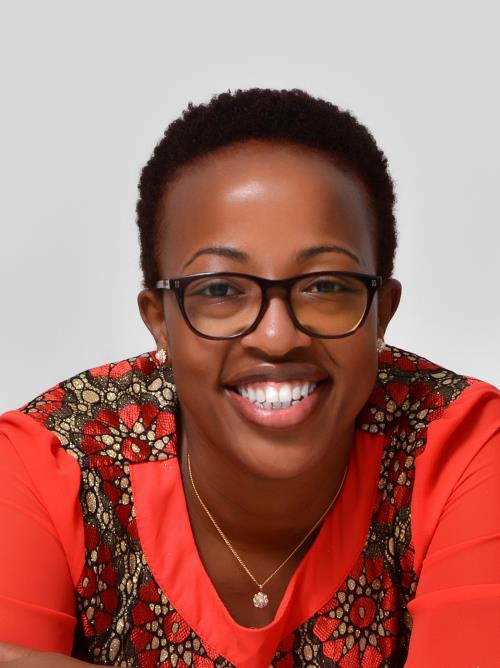
Rosemary is a relentless innovator with over fifteen years of professional experience in WFP, seven of which have been dedicated to leveraging innovation and technology to generate a positive impact in the humanitarian sector. In her current role, she is responsible for delivery of innovation consultancy services in WFP Kenya and management of the innovation team’s portfolio of digital projects. She is also the country lead for EMPACT, a global WFP initiative that seeks to connect youth from food insecure regions of Kenya to fair work online.
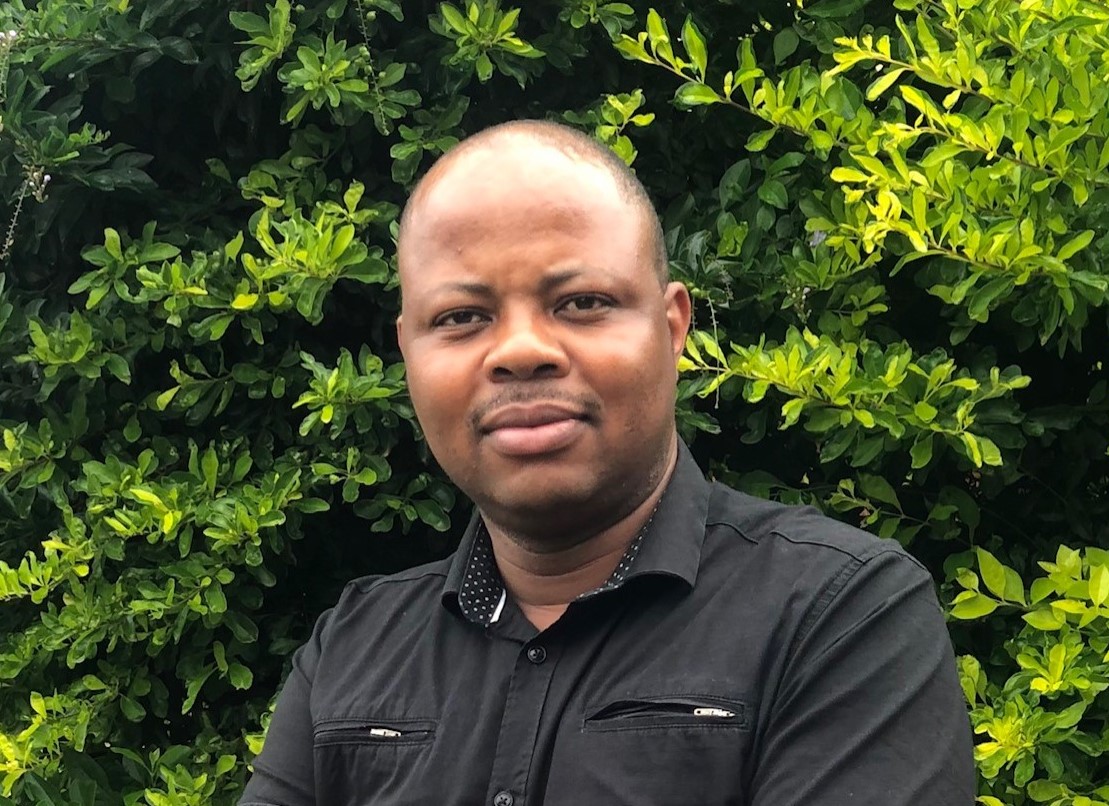.jpg?maxwidth=500)
Thembani coordinates the Innovation for Digital Agriculture Team in the Office of Innovation in FAO and also is the manager of the e-Agriculture Community of Practice. In the area of digital agriculture, he works with a team that supports and co-ordinate organization support to digital agriculture. The team areas include policy support to FAO countries in developing national digital agriculture strategies, support to digital agriculture and innovation in countries through the DAIH, backstopping support to various digital agriculture projects. For example, supports the digital skills for youth and women in Rwanda. Thembani further supports the FAO-ITU cooperation on digital agriculture in countries including the WSIS related activities.

Pippa McDougall is the Senior Advocacy Manager for the GSMA’s Connected Women team, advocating for the digital and financial inclusion of women and girls in low-and middle-income countries.
Prior to joining the GSMA, Pippa worked as an International Consultant for SheTrades Initiative at the International Trade Centre (ITC), which is a joint agency of the United Nations and the World Trade Organization, based in Geneva, Switzerland. Whilst at ITC, Pippa managed and implemented numerous projects and SheTrades Hubs aimed at empowering women economically through trade and e-commerce across sub-Saharan Africa and South Asia. In this capacity, Pippa also worked closely with the GSMA on advocacy related to bridging the digital gender divide as ITC’s focal point for the EQUALS Global Partnership.
Before joining ITC, Pippa worked for the Government of Canada on public policy as a Legislative Assistant to a Member of Parliament. Pippa holds a Master’s degree in the Political Economy of Emerging Markets from King’s College London (United Kingdom), and a Bachelor’s degree in International Development and Political Science from Queen’s University in Canada.
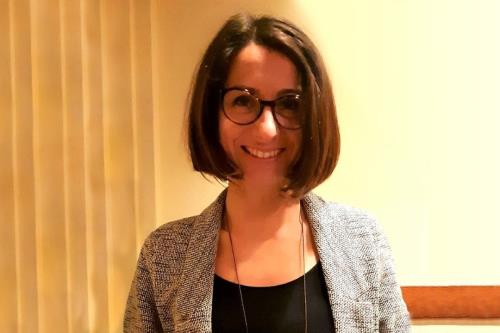
Marzia is a Youth Engagement and Communication for Development specialist currently supporting the FAO “Integrated country approach to boost decent jobs for youth in agrifood systems”, active in Guatemala, Kenya, Rwanda, Senegal and Uganda. In her role, she works closely with youth-led and youth-serving organizations to foster the informed participation, meaningful engagement and leadership of young women and men in the agricultural sector. She focuses on inclusive and innovative services that can amplify the voices of rural youth and strengthen their capacity to pursue decent jobs and livelihoods, such as the ChispaRural and the African Youth Agripreneurs (AYA) digital platforms.
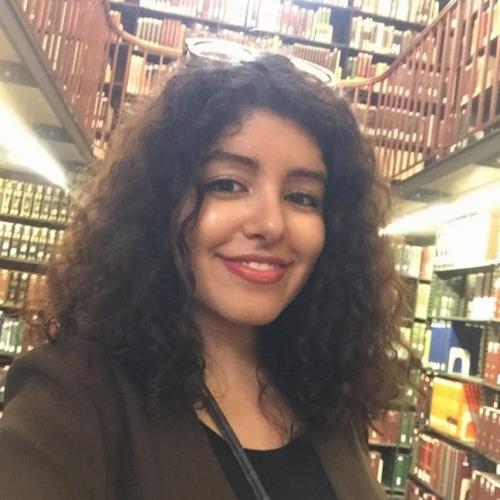
Huda Alsahi is a Social Policy Officer in the Gender team at the Inclusive Rural Transformation and Gender Equality (ESP) division of FAO. She has more than 6 years of experience in the fields of gender, empowerment and digital inclusion. She holds a PhD degree with Cum Laude in Political Science and Sociology from Scuola Normale Superiore and the University of Bologna in Italy. She was a visiting researcher at the Gender Studies Department at the University of California, Los Angeles and worked as a lecturer for ICTs and development-related courses in universities in Italy and the Kingdom of Bahrain.
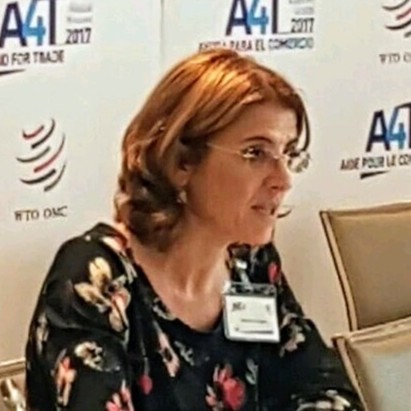
Eleonora Canigiani is currently Corporate Alliances Specialist with UNICEF and a.i. Programme Manager for the Global Youth Agribusiness Network (GYAN), a new programme under UNICEF Generation Unlimited initiative focused on promoting skilling, employment and entrepreneurship for youth and women in the context of agrifood systems.
Prior to joining UNICEF, Eleonora worked with FAO where she was part of the Food Systems Programme Management Team. Her work focused on agriculture, trade and food security issues, coordinating various projects to improve cross-sectoral collaboration, and supporting partnership building and resource mobilization for their implementation.
Previously, Eleonora was Trade and Markets Strategy Officer with the Global Mechanism of the United Nations Convention to Combat Desertification (UNCCD) working on financing strategies and resource mobilization for the implementation of the Convention. She also covered various roles in the International Fund for Agricultural Development (IFAD), working on smallholder farmers’ access to markets and agriculture value chain development projects.
Eleonora holds a degree in Foreign Languages with a major in Chinese language and culture, and additional courses in Development Economics from Rome University la Sapienza, a Master in Marketing Management, and a postgraduate specialization in Administration, Audit and Finance from LUISS Business School in Rome.
-
 C1. The role of governments and all stakeholders in the promotion of ICTs for development
C1. The role of governments and all stakeholders in the promotion of ICTs for development
-
 C4. Capacity building
C4. Capacity building
-
 C7. ICT applications: benefits in all aspects of life — E-agriculture
C7. ICT applications: benefits in all aspects of life — E-agriculture
-
 C11. International and regional cooperation
C11. International and regional cooperation
The session is mainly linked to C7 E-agriculture.
-
 Goal 4: Ensure inclusive and equitable quality education and promote lifelong learning opportunities for all
Goal 4: Ensure inclusive and equitable quality education and promote lifelong learning opportunities for all
-
 Goal 5: Achieve gender equality and empower all women and girls
Goal 5: Achieve gender equality and empower all women and girls
-
 Goal 9: Build resilient infrastructure, promote sustainable industrialization and foster innovation
Goal 9: Build resilient infrastructure, promote sustainable industrialization and foster innovation
-
 Goal 16: Promote just, peaceful and inclusive societies
Goal 16: Promote just, peaceful and inclusive societies
-
 Goal 17: Revitalize the global partnership for sustainable development
Goal 17: Revitalize the global partnership for sustainable development
The session has a main focus on digital skills and digital inclusion, particularly for youth and women. It aims to explore how digital technologies and digital capacity development can empower youth and women in agriculture and improve inclusiveness of agrifood value chains.
1. Status of Digital Agriculture in 18 countries of Europe and Central Asia: https://www.fao.org/publications/card/en/c/CA9578EN/
2. Status of Digital Agriculture in 47 sub-Saharan African countries: https://www.fao.org/documents/card/en/c/cb7943en/
3. WSIS Action Line C7: E-Agriculture "ICTs for Well-Being, Inclusion and Resilience: through digital skills for youth and women in agriculture": https://www.fao.org/e-agriculture/wsis-action-line-c7-e-agriculture-icts-well-being-inclusion-and-resilience-through-digital-skills